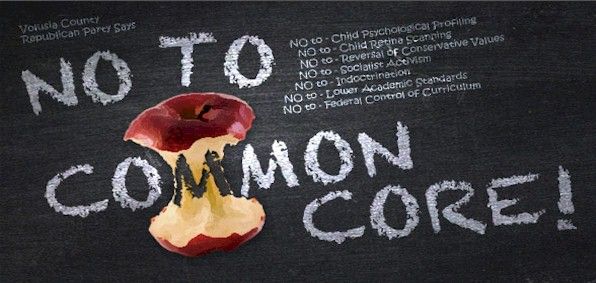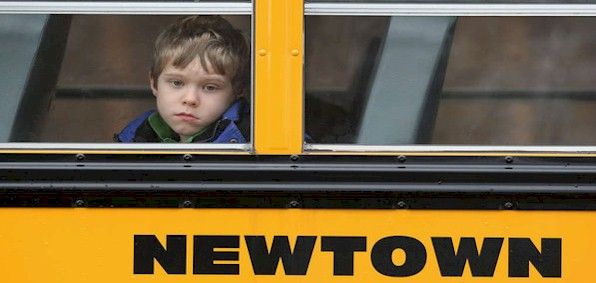http://www.thenewamerican.com/cultu...09-common-core-architect-now-dumbing-down-sat
[h=2]Common Core Architect Now Dumbing Down SAT[/h]
Even as the
unprecedented uprising continues to grow against the
Obama administration-pushed Common Core nationalization of education, one of the key “architects” of the controversial national standards announced an overhaul of the SAT that has critics up in arms. In addition to dumbing down the important test, one of two main standardized exams generally used by colleges for admissions, analysts say the revisions will play a key role in imposing Common Core on all American students — even children who are homeschooled, private-schooled, or in states that have officially resisted the widely criticized national standards.
The revamping of the SAT was announced last week by David Coleman, a controversial figure widely described as the “architect” of Common Core, who in 2012 became president of the College Board, which controls the tests. Among the biggest changes are the removal of the essay requirement and an end to penalties for incorrect answers aimed at discouraging guessing. Also sparking alarm among experts concerned about the ongoing dumbing down of American education is the fact that the SAT will be drastically scaling back and simplifying the vocabulary and math requirements.
“By changing the exam’s focus, we change the learning and work the SAT invites. Today, many students who are terrified they will be tested on lots of SAT words have one recourse: flashcards,” Coleman said in a statement about the changes to the tests, set to go into effect by 2016. “Every educator knows flashcards are not the best way to build real word knowledge, but when the SAT rolls around they become the royal road. Students stop reading and start flipping.” Speaking in Austin, Coleman also said the SAT should offer “worthy challenges, not artificial obstacles.”
Another key emphasis in the new SAT will be “fairness,” reducing “inequality,” and “providing opportunity” by, for example, partnering with the Khan Academy to help students prepare for the tests. College Board officials and Common Core proponents have claimed repeatedly in recent days that financially better-off students are able to do better on the exam because they can pay for tutors or preparation lessons. With the revamped SAT and its relationship with Khan to provide test-takers with free preparation, supporters of the changes hope to reduce that alleged unfairness.
Plenty of analysts have highlighted the fact that SAT has been losing market share to another college admissions test known as the ACT, which recently overtook the College Board’s exam in terms of the number of participating students. That may well be a factor in the latest announcement. For critics, however, one of the most important reasons for the changes — aside from artificially boosting student scores by removing harder vocabulary words and math problems, for instance — is an underhanded attempt to foist Common Core on America by stealth.
As
The New American warned last year in a
major report on Common Core, despite proponents’ claims that the radical standards are “voluntary,” the alignment of national college-entrance exams with Common Core is an effort to deceitfully ensnare every student in the United States in the Obama administration’s education “reform” regime. With the SAT aligned with the standards, even homeschooling families and students at private schools will be under heavy pressure to submit to Common Core.
None of it is really a secret. In fact, even the establishment press is trumpeting the new SAT’s role in foisting the standards on an increasingly outraged America. “In the process, it will help to cement the Common Core standards, which Mr. Coleman was integral in developing into the public education system as the path to college,” the
New York Times said about the coming changes. The ACT, which is reportedly already coming into alignment with Common Core, will do the same, the
Times noted.
Critics of the nationalization of education, though, were not pleased. “It’s a roundabout way to put pressure on states that opted out of Common Core,” said grassroots director Whitney Neal with Freedom Works, one of the myriad organizations working to stop the nationalization of education by the Obama administration and its establishment allies. “If you are legislator from Virginia let’s say, this will put pressure on you obtain material to make your district more appealing especially to homebuyers. SAT averages are often included in realtor information and high school success rate is always a selling point.”
Much of the ongoing transformation has only succeeded due to Americans being kept in the dark about what is happening, he continued. “What we have seen is that most people have no idea of most of these changes being made,” Neal was quoted as saying by Fox News in an article describing the SAT changes as a “blow” to Common Core foes. “That allowed them to make these changes without much of the general public even realizing that they did.”
Indeed, until very recently, the overwhelming majority of Americans had never heard of Common Core, much less that some 45 state governments had
accepted massive taxpayer-funded bribes from the Obama administration in exchange for adopting it. Opposition is
spreading across America like wildfire, with unions, liberals, conservatives, libertarians, teachers, parents, lawmakers, experts, and more all decrying the dubious standards. Now, though, even students in non-Common Core states and schools may be prodded into submission — at least if they want to be familiar with the material covered by the SAT.
Aside from imposing Common Core by stealth on an increasingly outraged public, another reason cited by analysts for dumbing down the SATs is to prevent parents and taxpayers from understanding the severity of the plummeting quality of education in America. The fact is that despite soaring costs paid by taxpayers, students are learning less and less, with tens of millions now functionally illiterate. The trends have actually been accelerating, with critical thinking skills and reading abilities plunging fastest.
It would hardly be the first time the SAT was revised to conceal the disaster that U.S. government schools have become behind a bogus façade of relatively steady scores on dubious standardized tests. By 2011, SAT reading scores had reached their lowest point in almost 40 years, according to the College Board. Incredibly, the SAT had even been “re-centered” about two decades earlier in an effort to boost plunging average scores and conceal the fact that students were scoring worse and worse. The test was most recently revised less than a decade ago.
Countless education experts have pointed out that the ongoing dumbing-down of education and national tests is hardly an accident. In fact, whistleblowers from the U.S. Department of Education and prominent researchers have documented a deliberate, decades-old effort — much of it led by the federal government and the “progressive” education establishment — to dumb down American students. The U.S. government, of course, has no constitutional authority to meddle in education at all. However, its unconstitutional machinations have been worse than counter-productive, and with Common Core, the troubling trends look set to accelerate.
As criticism of the revisions was building, a spokesperson for the College Board quoted in media reports defended the changes to the SAT. “The focus of the assessments is to measure what is essential for college and career readiness, not any one set of standards,” the spokesperson claimed in a widely quoted statement. “The College Board assessments measure the knowledge and skills that research shows to be essential for college and career readiness and success.”
With education quality plummeting nationwide combined with the Obama administration’s hostile and unconstitutional takeover of K-12 schooling, American families are being left with fewer and fewer options to obtain a proper education for their children that will train them to be critical thinkers. The recently announced SAT changes will only solidify that phenomenon — unless, as some advocates hope, the controversial dumbed-down test eventually becomes obsolete. However, regardless of what happens, advocates for critical thinking and classical education have not lost hope yet.
“We have said from the beginning that Common Core was just the camel's nose under the tent,” said Alan Scholl, executive director of
FreedomProject Education, an online K-12 school dedicated to providing classical education with Judeo-Christian values. “This is now permeating the entire educational spectrum. The damage from these SAT changes illustrate a critical element for people to understand — these flawed, politically correct standards are going to be impressed like a stamp on everything. There are people who think they're immune, but we're already seeing the permeation of Common Core even through homeschool and private school curricula. We've had to work very hard to keep our educational programs entirely free from these left-leaning standards.”
Not only are there still options available, with the rollout of Common Core sparking unprecedented opposition from across the political spectrum, the broader failure of government education is increasingly in the spotlight. An excellent first step to restoring proper schooling and a well-educated public so necessary to preserving liberty is to get the federal government out of education entirely by abolishing the Department of Education and restoring local control over schools. After that, communities can see what works and what does not — and act accordingly.
Alex Newman is a correspondent for The New American
, covering economics, politics, education, and more. He can be reached at anewman@thenewamerican.com.
Related articles:
Common Core: A Scheme to Rewrite Education
Orwellian Nightmare: Data-mining Your Kids
New York Revolts Against Common Core
Under Pressure, Largest N.H. School District Looks Beyond Common Core
Common Core National Education Outrages Teacher Coalition
At Wisconsin Hearing, Educators Blast Common Core Education
Educators Expose Dangers of Common Core National Education
Lawmakers and Activists Rally to Stop Obama-backed “Common Core”
GOP Blasts Obama-backed National Education Standards
Parent Dares Challenge Common Core, Hauled Away in Handcuffs
Debunking Myth of Common Core Education as “State Led”
Common Core: People vs. Big Government, Big Business, and Billionaires
Top Catholic Scholars Slam Common Core




